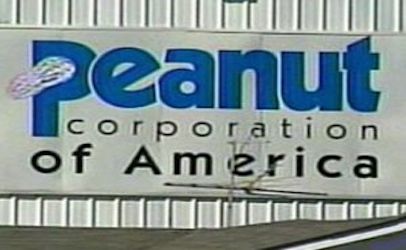Lawyer’s ‘severe health crisis’ could complicate Stewart Parnell’s hearing

Parnell was sentenced in 2015 to a 28-year prison term, which he is currently serving at a federal prison in West Virginia. He will be returned to the courtroom where a jury convicted him in 2014 so the federal magistrate can hear oral arguments on a motion to vacate his conviction and sentence on grounds he was denied, effective counsel.
In September 2019, Bondurant supported Parnell’s motion to vacate the conviction and sentence with a declaration, telling about a prospective juror who said he wanted to “extract my pound of flesh” from Parnell.
When asked what he’d heard about the case, Bondurant said that juror responded by saying: “I own an ag irrigation dealership, part of that, I’m a third-generation peanut farmer in Sumter County. So I have invested thousands of dollars in market promotion and it was tanked. Everything we did was washed away. Not only did they endanger children’s lives, but they also destroyed our market. I know people. Y’all kept referring to Lab 1 and Lab 2. I don’t know who Lab 2 is, but I know who Lab 1 is. I heard all about the samples. Of course, I know everything I read in — I read in the Albany Herald, and I read it in all of our trade magazines.”
Parnell’s appellate attorneys plan to show how Georgia’s peanut-growing counties turned hostile toward Parnell after PCA poisoned its customers and tainted the industry’s reputation. They are going to argue that Parnells’ trial attorneys should have sought a change of venue out of the hostile territory.
Parnell was indicted on Feb. 15, 2013, about four years after a Salmonella outbreak caused by peanut butter and peanut paste produced by Parnell’s Peanut Corporation of America plant poisoned thousands around the country and resulted in at least seven deaths. Parnell and four other PCA executives or managers were charged with conspiracy; introduction of adulterated food into interstate commerce with intent to defraud or mislead; introduction of misbranded food into interstate commerce with intent to defraud or mislead; mail fraud; wire fraud; and obstruction of justice.
Following a jury trial in August and September 2014, Parnell was found guilty of conspiracy to commit mail fraud and wire fraud, conspiracy to introduce adulterated and misbranded food into interstate commerce, multiple counts of introduction of adulterated food into interstate commerce, multiple counts of Introduction of misbranded food into interstate commerce, multiple counts of mail fraud, multiple counts of wire fraud, and two counts of obstruction of justice.
Parnell filed a post-trial motion for a new trial on Oct. 6, 2014, alleging that juror misconduct prejudiced his right to a fair trial. In part, he alleged that jury members discussed salmonella-related deaths allegedly caused by PCA’s products and that Juror 34 showed juror bias.
The court held two hearings, calling in every selected juror for individual questioning at the second hearing. One juror testified that other jurors had conducted their own research over the course of the trial and discovered that the defendants “killed nine people” in the outbreak.
That juror did not bring this alleged misconduct to the attention of any defendant or defendants’ counsel until after the trial had concluded. After a detailed review of juror testimony, the court found that “[v]iewing the totality of the circumstances, the court finds that there is no indication that any juror concealed harbored bias from the court or the defendants. . . [and] the court finds that the defendants failed to demonstrate that any juror failed to honestly answer any question during voir dire.”
In regard to whether the jury was exposed to prejudicial extrinsic information, the court found that three jurors stated that deaths were discussed in the jury room, but that “the discussion of deaths arose from a misperception or incorrect recollection of the trial testimony or evidence [that deaths were caused], not from the extrinsic source.”
Parnell was sentenced to 28 years in prison, which began when he entered on Sept. 21, 2015. It is to be followed by three years of supervised release.
Parnell appealed his conviction to the U.S. Court of Appeals for the Eleventh Circuit in Atlanta.
On appeal, he again argued that he was entitled to a new trial based on the jury’s alleged exposure to extrinsic evidence that people died as a result of the salmonella outbreak, that the district court erred in allowing testimony from former operating managers as to business records, and that the government’s evidence of loss was not sufficiently specific or reliable.
The Eleventh Circuit court assumed that “at least several of the jurors who sat on the case were exposed to extrinsic evidence,” but that the extrinsic evidence did not influence or contribute to the jury verdict. The Eleventh Circuit further found that the former operating managers had ample knowledge from which to testify and that there was no error in admitting this testimony, and that any remand for recalculation of the loss amount was futile and any errors in the district court’s calculation were harmless.
Meanwhile, Stewart’s brother Michael, who was also convicted of multiple felony counts and sentenced to 20 years, is making similar arguments.
“Trial counsel’s failure to investigate and call witnesses was not a strategy but a violation of Sixth Amendment standards and warrants presentation to the Court to make the case of just how material testimony would have been,” wrote Charlottesville, VA, attorney Elliott Harding on Michale’s behalf last April.
(To sign up for a free subscription to Food Safety News, click here)
